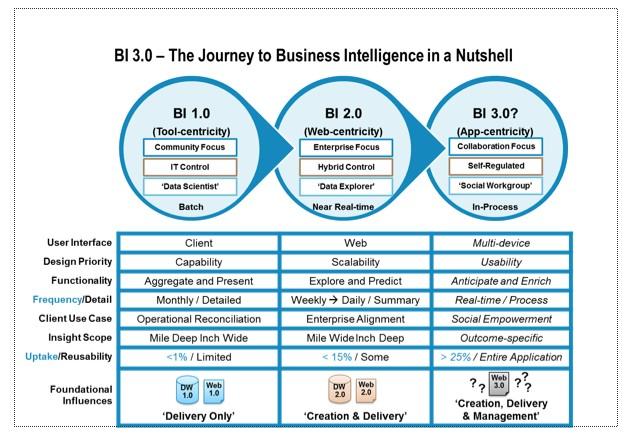Car Accident Lost Wages for the Self-Employed
Have you been injured in a car accident and are now unable to work? If you are self-employed, you may be wondering how you will make ends meet while you recover. Lost wages are one of the most significant financial challenges that self-employed individuals face after a car accident. This article will provide you with information about lost wages and how you can recover them if you have been injured in a car accident.
What are Lost Wages?
Lost wages are wages or income that you lose when you are unable to work due to an injury or illness. This can include:
- Regular wages or salary
- Commissions
- Bonuses
- Self-employment income
- Tips
Lost wages can be a significant financial burden, especially if you are the sole breadwinner for your family. If you have been injured in a car accident and are unable to work, it is important to contact an attorney to discuss your options for recovering your lost wages.
There are a number of ways to calculate lost wages, depending on your specific circumstances. One common method is to multiply your average daily wage by the number of days you have been unable to work. If you are self-employed, you can use your tax returns to calculate your average daily wage. You can also provide documentation of your income from other sources, such as bank statements or invoices, to support your claim for lost wages.
In addition to lost wages, you may also be entitled to recover other damages, such as medical expenses, pain and suffering, and emotional distress. An attorney can help you determine the full extent of your damages and negotiate a fair settlement with the insurance company.
Car Accident Lost Wages: A Guide for the Self-Employed
If you’re self-employed and have been in a car accident, lost wages are just one of the many challenges you may face. However, there are options available to help you recover what you’ve lost.
What is Self-Employment?
Self-employment is a type of work arrangement in which you are not employed by a specific company or organization. Instead, you work for yourself and are responsible for finding your own clients, setting your own hours, and managing your own finances. Self-employment can be a rewarding way to work, but it also comes with some unique challenges, particularly when it comes to recovering lost wages after a car accident.
Lost Wages After a Car Accident
Lost wages are one of the most common challenges faced by self-employed individuals after a car accident. When you’re self-employed, you don’t have the benefit of paid sick leave or disability insurance, so if you’re unable to work due to your injuries, you’re not going to get paid. This can put a significant financial strain on you and your family.
There are a few options available to help you recover lost wages after a car accident. One option is to file a claim with your auto insurance company. If you have personal injury protection (PIP) coverage, you may be able to recover a portion of your lost wages. Another option is to file a claim with the at-fault driver’s insurance company. If the other driver was at fault for the accident, you may be able to recover your lost wages from their insurance company.
If you’re unable to recover your lost wages through insurance, you may be able to get help from government programs. The Social Security Administration offers disability benefits to individuals who are unable to work due to a disability. You may also be able to get help from state or local government programs.
How to Recover Lost Wages
If you’re self-employed and have been in a car accident, it’s important to take steps to recover your lost wages. Here are a few tips:
- File a claim with your insurance company. If you have PIP coverage, file a claim with your insurance company as soon as possible.
- File a claim with the at-fault driver’s insurance company. If the other driver was at fault for the accident, you may be able to recover your lost wages from their insurance company.
- Apply for government benefits. If you’re unable to recover your lost wages through insurance, you may be able to get help from government programs.
- Contact an attorney. If you’re struggling to recover your lost wages, you may want to contact an attorney. An attorney can help you understand your rights and options and can help you get the compensation you’re entitled to.
Recovering lost wages after a car accident can be a challenge, but it’s important to know that there are options available to help you. By following these tips, you can increase your chances of getting the compensation you need to get back on your feet.
Car Accident Lost Wages: A Guide for Self-Employed Individuals
If you’re self-employed and have been injured in a car accident, lost wages can be a major concern. The good news is that you may be eligible to claim compensation for these lost earnings. Let’s delve into the details!
Can Self-Employed Individuals Claim Lost Wages?
Absolutely! Self-employed individuals can claim lost wages following a car accident. However, unlike regular employees who receive a fixed paycheck, self-employed workers need to prove their loss of income. This involves providing documentation that demonstrates your inability to work due to the accident.
Eligibility Requirements for Self-Employed Lost Wages
To be eligible for lost wages claims, self-employed individuals must meet certain requirements. Firstly, you must have been working at the time of the accident. Secondly, you must provide proof of your income, such as tax returns, bank statements, or invoices. Lastly, you must demonstrate that your injury or illness directly impacted your ability to work and earn income.
Proving Lost Income: A Step-by-Step Guide
Proving lost income can be a crucial part of your claim. Here are some steps to follow:
- Gather financial records: Collect tax returns, bank statements, and invoices that show your income before and after the accident.
- Document your injury or illness: Obtain medical records, doctor’s notes, and any other documentation that supports your inability to work.
- Provide a statement: Write a sworn statement explaining how the accident has affected your ability to earn income.
- Hire an expert: If necessary, consider hiring an accountant or economist to help you calculate your lost wages.
Maximizing Your Claim: Tips and Tricks
To maximize your lost wages claim, consider the following tips:
- Keep accurate records: Always maintain detailed financial records to prove your income.
- Seek medical attention promptly: Documenting your injuries or illness is crucial for your claim.
- Cooperate with insurance companies: Provide the necessary documentation and information to support your claim.
- Consider legal representation: If your claim is complex or you encounter challenges, an attorney can provide guidance.
Claiming lost wages after a car accident can be a daunting task, but with the right approach, you can ensure that you receive the compensation you deserve for your lost earnings.
Car Accident Lost Wages: A Guide for Self-Employed Individuals
Being self-employed can be both rewarding and, at times, a bit tricky. And when it comes to navigating the aftermath of a car accident, there are unique challenges that arise—especially if you’re someone who relies on your own sweat and hustle to make a living. The good news? You’re not alone. Plenty of self-employed folks find themselves in this situation each year, and there are options available to help. Here’s a comprehensive guide to claiming lost wages as a self-employed individual after a car accident.
Filing a Claim with Your Insurance Company
In the event of an accident, your first step should be to file a claim with your insurance company. They may be able to cover your lost wages, depending on the type of policy you have. Be sure to provide them with all the necessary documentation, including medical records, proof of income, and a statement from your doctor detailing the extent of your injuries and how they have impacted your ability to work.
Government Programs
If your insurance company doesn’t cover lost wages, or if you’re underinsured, there are government programs that may be able to assist you. One option is Social Security Disability Insurance (SSDI), which provides benefits to individuals who are unable to work due to a disability. Another possibility is Supplemental Security Income (SSI), which offers financial assistance to low-income individuals who are disabled or blind.
Proving Lost Wages as a Self-Employed Individual
Unlike salaried employees, self-employed individuals don’t have pay stubs to prove their lost wages. This can make it a bit more challenging to file a claim, but it’s not impossible. Here are some ways to document your lost income:
- Tax returns: Your tax returns will show your self-employment income for the past several years. This can be used to establish a baseline for your average monthly earnings.
- Bank statements: Your bank statements will show deposits from your self-employment activities. This can help to prove how much you were earning prior to the accident.
- Invoices: If you send invoices to clients, these can also be used to prove your lost income.
- Contracts: Contracts with clients can provide evidence of your expected future earnings.
Additional Tips for Claiming Lost Wages
- File a claim as soon as possible: The sooner you file a claim, the more likely you are to receive benefits.
- Keep a record of your expenses: Any expenses you incur as a result of your injuries, such as medical bills or transportation costs, can be used to support your claim.
- Get a lawyer: If you’re having difficulty filing a claim or getting the benefits you deserve, consider hiring an attorney.
Car Accident Lost Wages: Self-Employed Claims
If you’re self-employed and injured in a car accident, lost wages can be a significant financial burden. Fortunately, some insurance policies and government programs provide compensation for this loss.
Eligibility Requirements for Self-Employed Lost Wages Claims
To qualify for self-employed lost wage claims, you generally need to meet the following requirements:
- Valid business license: You must have a current and valid business license.
- Proof of income: You must provide documentation showing your income, such as tax returns, invoices, or bank statements.
- Loss of income: You must demonstrate that you experienced a loss of income as a direct result of the accident.
- Reasonable effort to mitigate: You must show that you made reasonable efforts to mitigate your losses, such as by seeking alternative sources of income.
- Causation: You must prove that the accident caused your loss of income. This usually requires a medical report confirming the injury and its impact on your ability to work.
How to File a Lost Wages Claim
Filing a lost wages claim can be a complex process. Here are the steps you need to take:
- Gather Evidence: Collect documentation to support your claim, such as medical records, income records, and a written statement explaining your losses.
- Contact Your Insurer: Notify your insurance company and provide them with the required documentation.
- File a Claim: Submit a formal claim to your insurer, following their specific procedures.
- Negotiate a Settlement: If your insurer disputes your claim, you may need to negotiate a settlement. You can consider seeking legal advice during this process.
Other Options for Lost Wage Compensation
If your insurance coverage doesn’t provide adequate compensation for your lost wages, you may have other options to explore:
- No-Fault Insurance: Some states have no-fault insurance laws that may allow you to recover lost wages regardless of who was at fault for the accident.
- Disability Insurance: If you have disability insurance, it may provide coverage for lost wages due to an injury.
- Government Assistance: Some government programs, such as Social Security Disability Insurance (SSDI), may offer benefits for lost wages due to an accident.
Conclusion
If you’re self-employed and injured in a car accident, it’s crucial to understand the eligibility requirements for lost wages claims. By gathering evidence, filing a claim, and exploring other options, you can ensure that you receive fair compensation for your financial losses. Remember to prioritize your physical and financial recovery and seek professional guidance when necessary.
Car Accident Lost Wages Self-Employed
A car accident can be a life-changing event, and the financial impact can be significant, especially if you’re self-employed. Lost wages can add up quickly, and without a steady paycheck, it can be difficult to make ends meet. If you’ve been in a car accident and you’re self-employed, there are steps you can take to recover your lost wages.
One of the most important things you can do is to document your lost wages. This includes keeping track of the hours you would have worked, your hourly rate, and any other income you would have earned had you not been injured.
Documentation Needed for Self-Employed Lost Wages Claims
When filing a claim, you will need to provide documentation to support your claim, such as medical records, tax returns, and financial statements. Here’s a breakdown of the documentation you’ll need:
• Medical records: These records will provide proof of your injuries and the extent of your disability.
• Tax returns: Your tax returns will show your income and expenses, which will help to establish your lost earning capacity.
• Financial statements: These statements will provide a detailed picture of your financial situation, including your income, expenses, and assets.
In addition to the above documentation, you may also need to provide:
• A letter from your doctor stating your injuries and prognosis.
• A statement from your employer (if you have one) verifying your lost wages.
• Evidence of any other income you would have earned had you not been injured (e.g., self-employment income, investment income, etc.).
Car Accident Lost Wages Self-Employed
In the aftermath of a car accident, the road to recovery can be long and arduous. And for self-employed individuals, the financial implications can be particularly daunting. Unlike traditional employees, self-employed workers don’t have the luxury of paid sick leave or disability benefits. So, when they’re unable to work due to injuries sustained in an accident, they face a double whammy: lost income and mounting medical expenses.
How to Calculate Lost Wages for Self-Employed Individuals
Calculating lost wages for self-employed individuals is more complex than for regular employees. It involves estimating the income you would have earned if you were not injured or ill. Here are some steps to consider:
1. Gather your financial records. This includes your tax returns, bank statements, and invoices. These documents will provide you with a clear picture of your income and expenses.
2. Determine your average daily income. This is calculated by dividing your annual income by the number of days you worked during the year.
3. Multiply your average daily income by the number of days you were unable to work. This will give you a rough estimate of your lost wages.
4. Factor in any additional expenses. This could include medical bills, transportation costs, or childcare expenses.
5. Subtract your expenses from your lost wages. This will give you your net lost wages.
6. Consult with an attorney. An experienced attorney can help you determine the full extent of your damages and ensure you receive fair compensation.
7 Ways to Prove Lost Wages
When it comes to proving lost wages, self-employed individuals can face some unique challenges. Here are seven tips to help you document your losses:
1. Keep a detailed record of your work hours. This can be done in a calendar, planner, or spreadsheet.
2. Track your income and expenses. Use invoices, receipts, and bank statements to keep a clear record of your financial activity.
3. Get letters from clients or customers. These letters can attest to the work you would have done if you were not injured.
4. Get a statement from your accountant. Your accountant can provide a summary of your income and expenses for the period you were unable to work.
5. Submit a sworn affidavit. This is a written statement that you swear is true under penalty of perjury. It should include information about your work history, income, and expenses.
6. Hire an expert witness. An expert witness can provide testimony about the value of your lost wages.
7. Use social media. Social media posts can provide evidence of your work activities and lost income. For example, you could post photos of yourself working on projects or share updates about your business.




Leave a Reply